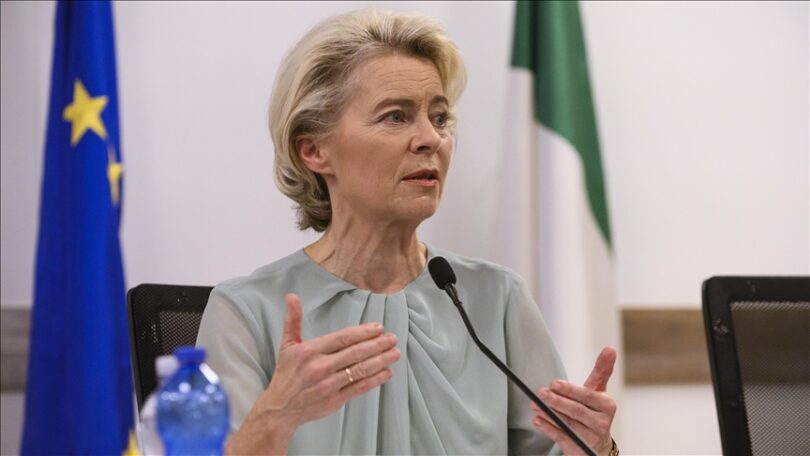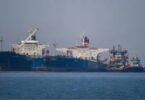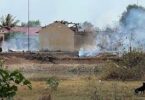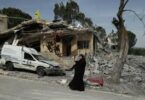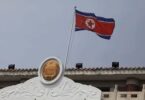ROME / BRUSSELS (AA) : EU Commission President Ursula von der Leyen visited the Italian island of Lampedusa in the Mediterranean, which has been inundated with irregular migrants in recent days, and presented a 10-point action plan to support Italy.
With approximately 11,000 irregular migrants arriving on the island of Lampedusa from Africa to Europe through the irregular migration route in the Central Mediterranean over the past week, creating a critical situation on the island, Italian Prime Minister Giorgia Meloni invited von der Leyen, who arrived on the island on Sunday morning.
During her visit to Lampedusa, von der Leyen visited the island’s migrant reception center and met with the local community.
They also conducted inspections at the “boat graveyard,” where irregular migrants’ boats are stored, and at the reception point in the port where migrants arrive.
While Meloni and von der Leyen were on the island, there were some tense moments when a group of local residents protested the influx of irregular migrants.
Meloni responded to the protesters by saying, “We are doing everything in our power.”
Following the inspections, the two leaders held a joint press conference.
– ‘Migration is a European problem’
“Migration is a European issue that requires a European solution. Italy can rely on the EU,” von der Leyen said.
She emphasized the importance of being in Lampedusa, saying, “It is us who will decide who comes to the EU, not human traffickers.”
The EU Commission chief also unveiled a 10-point action plan to support Italy during a press conference.
The host Meloni said they are facing a very large influx of migration, saying, “The numbers in this migration phenomenon will shake border states first and then everyone. This problem concerns everyone, and everyone needs to address it. I believe that von der Leyen’s presence here sends a signal of awareness.”
She emphasized the importance of a more effective fight against migrant boat departures and human traffickers.
Instead of individual states implementing agreed-upon legal migration quotas, she believes the EU should activate an effective return system.
She stressed that the UN involvement is “absolutely necessary.”
“This is a game about the future of Europe, and this game depends on Europe’s capacity to deal with significant challenges,” Meloni said, lauding von der Leyen’s approach to cooperation.
“We cannot solve this problem by resettling migrants within EU borders. We must also address the external dimensions of this issue. The only way to stop illegal migration is to stop these illegal departures,” she added.
Regarding the proposal to establish a mission at sea if necessary to prevent the migration influx to the EU, the Italian prime minister noted: “The only serious way to deal with this issue is to help North African authorities manage this migration flow.
“This should be done in agreement with North African authorities. In the past, EU sea missions became more of a pull factor than a deterrent. But I believe it is necessary.”
The premier also referred to the EU’s Sophia Operation, which was launched in 2015 to combat irregular migration and was discontinued in 2020, saying, “Let’s restart from the second and third parts of the Sophia mission, which were never carried out because it was revealed in the first part that it acted as a kind of pull factor. In my opinion, this is where we should start.”
10-point plan
The following measures will be taken, according to the announced 10-point plan:
Increased assistance to Italy in the procedures related to the arrival of migrants through the EU Asylum Agency and the EU border protection agency Frontex.
Support for the transfer of migrants arriving in Lampedusa to other EU countries willing to accept them.
Increased cooperation with African countries, where the majority of migrants arrive, and raised the number of migrants returning.
Support for efforts to prevent human trafficking through partnerships with source or transit countries like Tunisia.
Increase in border patrols at sea and in the air, including those conducted by Frontex, with a focus on the Mediterranean region.
Disruption of human traffickers’ logistical networks, as well as restrictions on the use of unseaworthy vessels.
Support for accelerated border entry procedures and denial of entry to individuals coming from safe source countries, with these restrictions being recorded in the Schengen Information System.
Campaigns to raise awareness in order to deter people from crossing the Mediterranean.
Enhanced cooperation with UN migration and refugee agencies for voluntary returns.
Implementation of migration agreements, such as the one recently signed with Tunisia.

